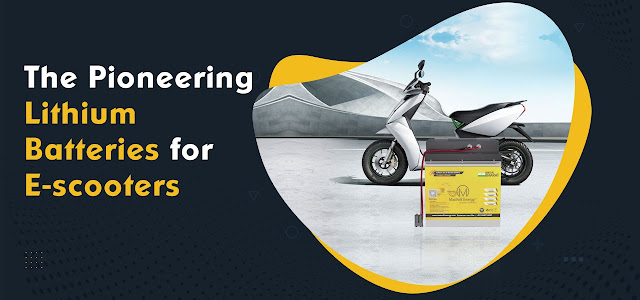Guidelines for Extending the Life of Lithium-Ion Batteries
Lithium-ion batteries are used in a vast range of products, including electric vehicles, laptops, and cell phones. Many electric vehicle owners appear to have legitimate concerns about the battery life expectancy of their vehicles. Battery life in their EVs doesn’t last long and becomes uneconomical to operate and repair over time.
Lithium-ion battery manufacturers in India offer extended warranties of up to 8 years due to their battery management systems for electric vehicles. Batteries used in EVs can travel hundreds of thousands of miles, and they are constantly getting better. The price of EV batteries has also dropped significantly.
Rechargeable lithium-ion batteries need regular upkeep and caution when using and handling them.
Many EVs already have longer battery lives than many gas-powered cars, which is more than enough.
Before planning how to lengthen the battery life of your electric vehicle, remember that there are already built-in protections. First of all, more recent EVs cannot be overcharged, discharged, or overheated. Even with these built-in safeguards, they can increase the lifespan of an EV battery.
Let's look at how you can extend the battery life of your EV.
Park your EVs in the shade-
The most common danger occurs when exposed to extreme heat while parked unplugged. An automated temperature control system installed in your electric vehicle will drain your batteries unnecessarily to maintain optimal efficiency. To keep your electric vehicle's thermal management system from using grid power during operation, park it in the shade or plug it in so that it uses only grid power while it makes use of its battery.
Reduce the battery's use at full charge-
A battery management system that prevents charging and discharging at an extreme state of charge is already built into electric cars. The performance of the battery life of your car is improved by maintaining the battery charge between 0% and 100%. Battery longevity is never assured with full charges, regardless of how long they last.
Do not use fast charging-
Using a fast charger is very convenient if your batteries are about to run out. But because it pumps so much current into the batteries so quickly, your EV battery is strained and dries out more quickly. Although it may be difficult to notice, eight years of standard charging will result in 10% more battery life than eight years of fast charging.
Control the ideal battery charge level during extended storage-
Electric vehicles' batteries deteriorate when they are parked or stored, whether they are full or empty. If you don't use your electric car often or have a long trip planned, get a timed charger and plug it in. When you park your car at full charge for an extended time, the battery will struggle to maintain its state of charge while you are away. One tactic is to set the charger so that the charge stays between 25% and 75% of its average level, above the low mark, and not filled.
Safety Measures
Batteries should not be disassembled, crushed, or punctured.
Avoid shorting a battery's external contacts.
Batteries should not be disposed of by fire or water.
Batteries should not be exposed to temperatures higher than 60°C (140°F).
Excessive shock or vibration should be avoided.
Never use a faulty battery.
Do not touch any fluids leaking from a battery pack.
Conclusion
These suggestions can help to extend the battery life of an electric vehicle. Make a few behavioral changes, and you'll get more out of your battery pack in the long run, as well as a better chance of a healthy resale value when it's time to upgrade. If you are still unsure, contact Maxvolt Energy, one of the best lithium battery manufacturers.
.png)
.jpg)


Comments
Post a Comment